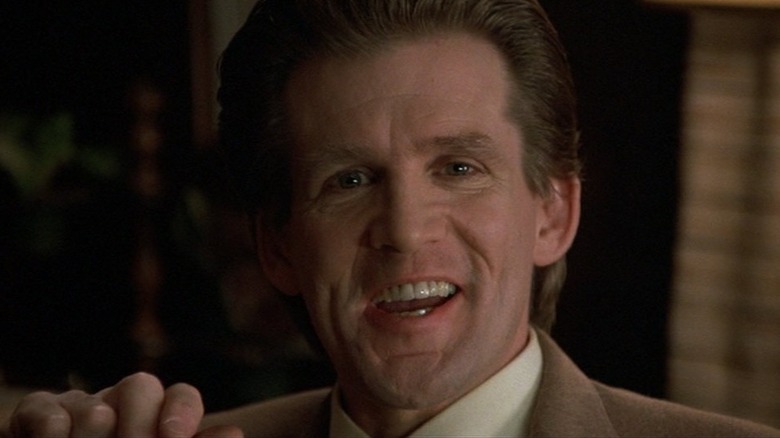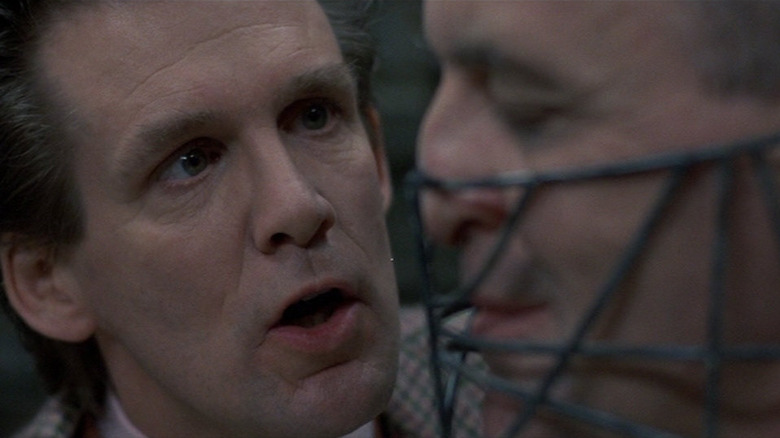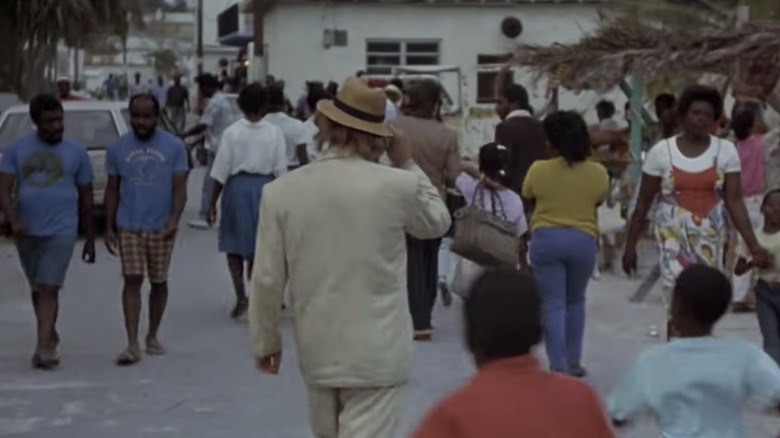
Anthony Heald had a challenge when playing Dr. Frederick Chilton in "The Silence of the Lambs" — he had to make his character less likable than not one but two serial killers. In a testament to his talent, he succeeded.
From his first scene, Chilton oozes more slime than a Devonian swamp. When he makes a pass at an uninterested Clarice Starling (Jodie Foster), director Jonathan Demme frames him staring right back at the camera so we can feel Clarice's same unease. He simultaneously aggrandizes and underestimates Hannibal Lecter (Anthony Hopkins), speaking of him like a caged animal yet declaring himself the not-so-good doctor's "nemesis."
Chilton's glory-chasing ultimately gives Lecter an opening to escape. Chilton flees to Bahamas but his former prisoners finds him all the same. Lecter, chatting to Agent Starling on the phone as he watches Chilton, bids Clarice farewell with a double entendre for the ages: he has to run because he's "having an old friend for dinner." It's an ending that's scary because of what doesn't happen. Chilton's doomed, but we don't see the murder. As Lecter follows him, he walks slowly and disappears into the crowd: He's a monster who looks like a man.
Demme and screenwriter Ted Tally always intended for the movie to end with Lecter pursuing Chilton. However, the original conception of the scene was more open and shut.
Changing The Novel's Ending

Thomas Harris' original novel resolves Lecter's key relationships differently. He simply sends letters to Clarice and Chilton, promising the former he won't pursue her and the latter that he will. The book ends with Clarice reading Lecter's letter then sleeping peacefully, a sign that the slaughtered lambs from her childhood have indeed stopped screaming into her ear. A strong ending for the book, but not a very cinematic one. Tally changed the letter to a phone call, which not only fits film better but more directly concluded Clarice and Lecter's dynamic.
As documented in "Four Screenplays: Studies in the American Screenplay" by Syd Field, Tally's original script ended differently once the phone call was over. Instead of an open town square, Lecter is in an opulent house. He strolls inside and confronts Chilton, who's bound to a chair with tape around his mouth. Lecter, holding a knife, asks him, "Well, Dr. Chilton. Shall we begin?" then cut to "The End."
According to Tally's quotes in Field's book, this ending "survived three drafts of the script" but was changed after suggestions by Demme.
Demme's Objections

Demme was renowned as an empathic filmmaker and his considerations of Chilton's fate demonstrate that. In "Four Screenplays, Tally recounted, "Jonathan said, 'You know, as much of a slimebag as Chilton is, he's a human being. And it's so squirmy to know that he's trapped, he doesn't have any chance whatsoever of escape. It's too close-ended.'"
One passage in the novel does shift the mood around Chilton's character from contempt to pity. When Clarice surmises how lonely his life is, she takes the upper hand in their verbal sparring:
"In that instant Starling saw his life and he knew it. She saw his bleak refrigerator, the crumbs on the TV tray where he ate alone, the still piles his things stayed in for months until he moved them... she knew not to spare him, not to talk on or look away. She stared into his face, and with the smallest title of her head, she gave him her good looks and bored her knowledge in, speared him with it, knowing he couldn't stand for the conversation to go on."
Demme's suggestion is how Tally came upon the more open-ended conclusion for Chilton. Even though he was clearly satisfied by his original idea, Tally actually liked the final ending even better.
"Something else I learned is that if you can end a movie without tying up all the loose ends, it's better. If you can leave it open-ended, it will live in the audience's imagination better. They're more engaged that way. They will continue the story in their own minds when they leave the theater."
Hannibal Lecter, who has become an icon of horror fiction thanks to Demme's movie and Hopkins' performance, definitely lingered in the audience's imagination. Nothing's scarier than a monster who gets away with it.
Read this next: The Highest Rated Horror Movies Of All Time
The post Silence Of The Lambs' Original Ending Was Much More Grim For Dr. Chilton appeared first on /Film.
0 Comments